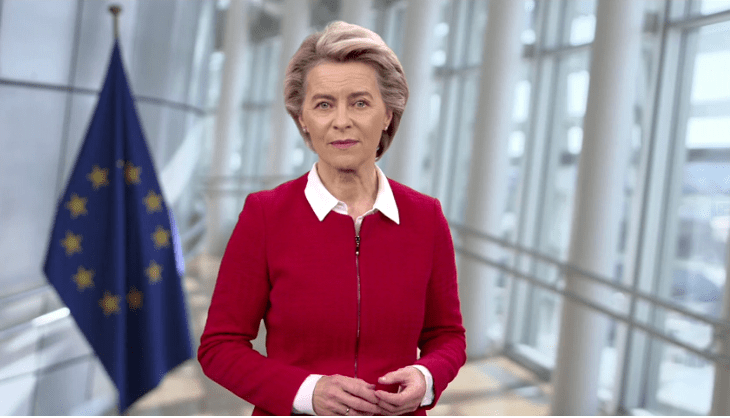European Commission President Ursula von der Leyen issued today a statement on the finalisation of the national recovery plans.
As vaccination is gathering speed across Europe, she stated, it is now essential that EU’s economy, which was badly hit by the pandemic, also recovers rapidly.
“We have €750 billion from our NextGenerationEU recovery plan, which we need to invest rapidly. This will boost our social market economy and power our unique single market. It will enable Europe to come out stronger from the crisis.”
According to the statement, the EU member states are right now finalising their National Recovery and Resilience plans. “The Commission works hand in hand with them on the plans, around the clock. Because we need to target these investments carefully, to make Europe fit for the future.”
In the following weeks, the Commission plans to translate the recovery plans into legal texts.
The Commission president listed the priorities. “We want to build a Green Europe, which protects our climate and our environment. And which creates sustainable jobs. We want to invest in a digital Europe, innovative and competitive in global markets. And we want a resilient Europe, which is better prepared to face future crises.”
A Commission spokesperson told The Brussels Times that currently only Portugal has submitted a final recovery plan. Almost all other member states have sent draft plans or components of their plans.
Portugal is in charge of the EU Presidency during the first half year of 2021. In its work programme, Portugal defined three main priorities, broken down to a number of action points, under the motto “Time to deliver: for a fair, green and digital recovery”.
As a rule, member states are invited to notify their plans before 30 April but can do so at any point in time until mid-2022, according to the spokesperson. 30 April is an orientation date, not a deadline. In order to ensure that the plans have the necessary balance and quality, some member states will need a few more weeks to finalise their plans.
“Drawing-up plans for reforms and investments for the next six years while fighting the pandemic is objectively a challenging task and we need to get this right. Quality of the plans should be the first priority. A good quality plan will not only allow for a smooth adoption process but also facilitate implementation and payments in the years to come.”
As regards the rule or law mechanism, which will allow for the suspension or reduction of EU funding to member states in breach of rule of law principles, the Commission is currently preparing guidelines, which will set out in more detail how the Commission will apply the regulation. The guidelines will be finalised after a judgment of the European Court of Justice.
“We are working without delay on the guidelines, but cannot give a concrete date yet. It is important to get this right,” the spokesperson explained. “We’ll see how best to consult member states and the European Parliament in the preparation of the guidelines. Taking into account the need for consultation and awaiting the Court’s ruling, the adoption of the guidelines may take some time.”
Update: The European Commission announced on Wednesday (28 April) that it has received official recovery and resilience plans from two more countries - Germany and Greece.
M. Apelblat
The Brussels Times

